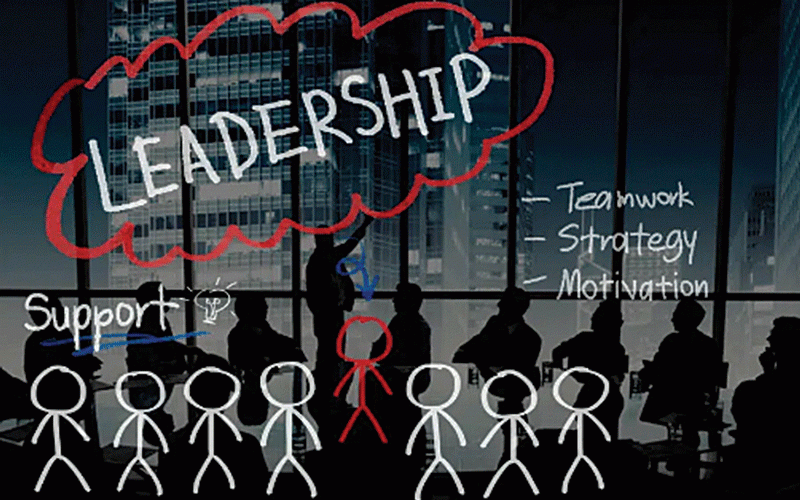
guest column:Emmanuel Zvada
The coronavirus (COVID-19) outbreak has everyone on edge and extreme measures are being encouraged and enforced across the globe, the switch to remote work is on the fast track for many in the workplace in other countries.
The 2020 coronavirus pandemic spread to South Africa and as confirmed by Health minister Zweli Mkhize the country now has a total of 51 confirmed cases, and zero deaths. The threat of the new coronavirus is making working from home a more and more popular option for many companies and the question here is if Zimbabwe is ready to deal with coronavirus from the employer’s perspective.
The situation is ever-evolving as the virus continues to spread in some southern African countries. Of course, yes measures should be put in place from those that are responsible but l feel HR practitioners and policymakers should also come up with responsive measures as a way of preparing for the virus as they monitor public health notices. In this article, we will try to be proactive in our analysis so that we predict what is likely to happen if the virus hits our country.
In actual fact as it appears from other countries nobody wants employees to come to work if they are sick or have been exposed to the virus, they are quarantined.
According to the World Health Organisation, there are now more new coronavirus infections outside China than inside and it’s likely that Zimbabwe will also be a victim. With growing concerns about the coronavirus (COVID-19) pandemic, more companies are telling employees to work from home to prevent possible infections from spreading in the workplace. Facebook, Google, Twitter and Microsoft are among the hundreds of organisations doing this.
Perhaps your organisation has too and you might be faced with working from home for an extended period for the first time, are you ready? Working remotely is a new and different experience.
And since I am guessing there are no measures in place we are likely to face a productivity crisis as a nation if the virus hits the nation. While working from home can be considered as another alternative, the employees also need to have access to internet and electricity.
- Chamisa under fire over US$120K donation
- Mavhunga puts DeMbare into Chibuku quarterfinals
- Pension funds bet on Cabora Bassa oilfields
- Councils defy govt fire tender directive
Keep Reading
Coronavirus: HR’s role HR leaders should safeguard against the spread of the illness without causing panic. You need to take leadership in HR and implement quick coronavirus HR measures before it hits us.
By providing employees with accurate information about coronavirus, HR can maintain good order and protect the organisation against potential liability. To avoid the spread of misinformation, HR should endeavour to ensure that employees aren’t sharing false information or gossiping about others. Companies must proceed carefully, taking care to ensure their policies for dealing with coronavirus are in place.
Effective communication is key Good communication skills are key to success in life, work and relationships. Without effective communication, a message can turn into error, misunderstanding, frustration, or even disaster by being misinterpreted. HR departments should pool together information pertaining to the coronavirus to create a ready-to-refer to instructional guide for employees that not only educates them about the viral infection, but also lists ways to avoid it.
The communication strategy should be multi-pronged and use all channels of communication available in the organisation concerning coronavirus. This can be bulletins, sticking posters on the wall, emails, chat groups, town hall, infographics, videos, and any mode of media that could help to effectively communicate the message to all employees.
Evaluating your sick and employee leave policies Now would also be a good time to evaluate your sick leave and employee leave policies, including considering extended sick day allowances for employees. The reason being you would not want ill or suspected employees coming to work. If working from home is not an option, consider developing a plan to waive or extend sick day caps so that employees can stay at home.
Employers should be willing to give some days off to those who have visited affected countries. The off days will be specifically for screening and undergoing some tests related to the coronavirus.
If you have recently travelled abroad, your employer may ask you to stay home for the virus’ incubation period, which is generally up to 14 days as they say. The same goes for people who have had close contact with someone who visited an affected region.
Even if workers appear healthy at the end of the incubation period, their employers could require a medical examination to see if they are healthy. By employees this also refers even to the CEO’s etc, who normally travel abroad, the reason being that the virus is not selective, anyone can be infected by it.
Employees showing symptoms generally take sick or emergency leave, while those affected by quarantines have been working from home when that’s possible. If the illness is work-related, the employee caught the virus while on business travel, it is important for employers to have to be very careful and do a strict case-by-case assessment of whether the concern is valid and the employee may be entitled to workers’ compensation.
Re-evaluating and coming up with remote-work policies Many companies are reconsidering their work-from-home policies in preparation for what may come if the virus’ impact is widespread and prolonged. As you prepare your employees for remote work, particularly those who typically come into the office, you will want to check in on them to help them navigate the shift, especially in the early days. Consider creating support groups with experienced remote-work employees and sharing practices that will help them acclimatise to the new work structure.
If employees will be working from home, support will be needed greatly. Employees are going to have questions.
If you are an HR leader, it is important to be as proactive and open as possible so that employees can understand your company’s plans. Consider creating a FAQ document that proactively address questions mostly asked. It is also imperative to ensure that people teams are all fully informed of your plans so that they can communicate with employees.
Using technology to avoid human contact With the coronavirus outbreak largely unchecked, now is a time to make use of technology to avoid human contact. Helped by technology, however, people may be able to reduce their exposure to the virus.
Platforms that allow teams to collaborate and communicate effectively can be used during work-from-home days. Meetings can be done over Skype, Google hangouts, or Zoom, while real-time collaborations can be done using free platforms.
Having a plan before the coronavirus hits us is very crucial. Employees will be looking to employers for guidance and direction. Having a plan in place will help ensure you can proactively address some of their concerns and uncertainty as events unfold over the coming months.











